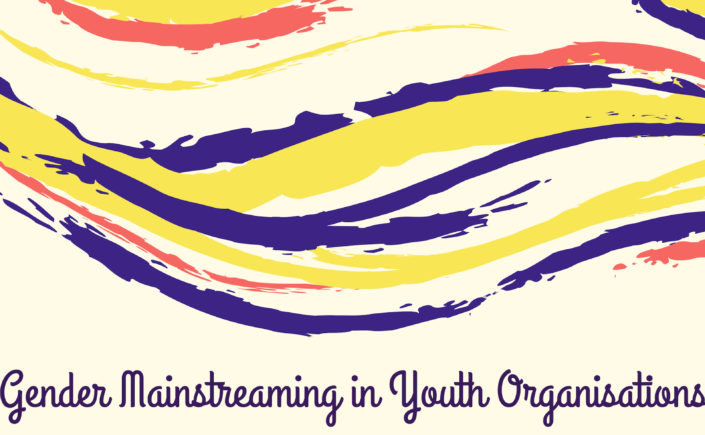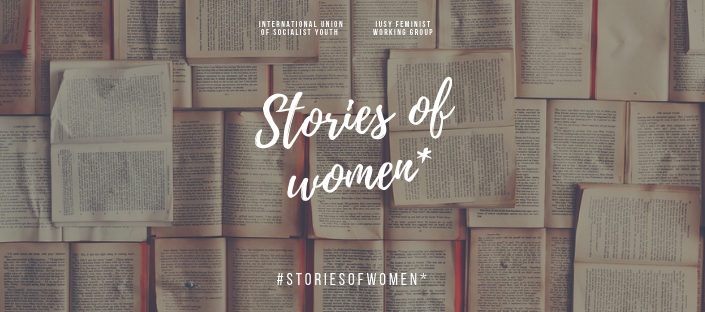[ES]
Soy una abogada y militante feminista del Paraguay. Pasé tres años en la cárcel por un crimen que no cometí. Mi caso se convirtió en uno paradigmático, porque como pocas veces, se hizo justicia.
Fui acusada de asesinar a mi esposo en el año 2011, y estuve en la cárcel del Buen Pastor durante tres años. Sin embargo, he sufrido violencia intrafamiliar desde el 2008. He sufrido golpes y maltratos del que en ese entonces era mi esposo. Habiendo realizado las denuncias a las autoridades pertinentes, igual la violencia y el calvario continuaron. En uno de los ataques que sufrí, mi ex esposo me atacó con un arma de fuego, y en un forcejeo él terminó herido y finalmente perdió la vida.
La fiscalía me acusó de homicidio doloso, y pidió una pena de 30 años de prisión. La situación federó a una cantidad importante de activistas y ciudadanos alrededor de mi libertad, y mediante la incidencia y la presión y de un trabajo laborioso y sacrificado de un equipo de abogadas y abogados, finalmente se logró que la Corte Suprema de Justicia, por unanimidad me absuelva.
Considero que la participación es importantísima porque por falta de información muchas veces las mujeres no podemos zafar de una situación que es considerada como normal. Es igualmente importante la ayuda mutua y la sororidad, así como el apoyo ciudadano.
Es cuando hablamos con las personas que nos damos cuenta que en realidad nosotras estamos siendo víctimas. En varias charlas que estoy realizando, la gente se me acerca para decirme que había sido ellas eran víctimas, recién al acceder a la información se dan cuenta de eso.
Lo que me tocó vivir hizo que asuma un compromiso. Si yo pasé por todo eso, otras mujeres también están pasando por lo mismo, o muchas podrían sufrirlo en el futuro. La ayuda que recibí por parte de la ciudadanía, que luchó por mi libertad, hizo que yo también quiera luchar contra la violencia machista.
Todos los días se ven casos de feminicidio, es por la propia convicción que decidí luchar, porque hay que ir ganando espacios. Mi caso rompió un esquema tradicional, porque les cuesta a las mujeres acceder a la justicia.
La unidad por todos los derechos es el único camino para lograr victorias en contra del sistema machista. El problema de la violencia machista tiene que ser combatido desde la educación primaria, para lograr cambios estructurales. Actualmente estoy incursionando en política en el Partido País Solidario, y pugnando por un escaño en la Cámara de Diputados, ya que los cambios estructurales se darán si copamos los espacios, y con políticas públicas a nivel nacional.
Esta es una problemática no solo a nivel nacional, en Paraguay muere una mujer cada 8 días por casos de feminicidio. No debemos renunciar a nuestros derechos, debemos acudir a pedir ayuda donde corresponde, no se sientan solas, porque si nos callamos, nos exponemos a nosotras mismas.
Lucia Sandoval, abogada y militante feminista del Paraguay
[EN]
I am a lawyer and a feminist activist from Paraguay. I spent three years in prison for a crime I did not commit. My case became a paradigmatic one, because as a seldom case, justice was performed.
I was accused of murdering my husband in 2011, and I was in Buen Pastor prison for three years. However, I have suffered intrafamily violence since 2008. I have been beaten and abused by my husband at the time. Having made the reported it to the relevant authorities, the same violence and the ordeal continued. In one of the attacks I suffered, my ex-husband attacked me with a firearm, and in a struggle, he ended up injured and eventually lost his life.
The prosecution accused me of intentional homicide, and requested a sentence of 30 years in prison. The situation united a significant number of activists and citizens. Through advocacy and pressure and a laborious and sacrificial work of a team of lawyers, finally, the Supreme Court of Justice unanimously acquitted me.
I believe that participation is very important because, due to lack of information, women often cannot escape from a situation that is considered normal. Mutual support and sorority, as well as citizens support, are equally important.
It is when we talk to people that we realise that in reality we are being victims. In several talks that I am doing, women come to and tell me that they have been victims too. Only when they have access to information they realise that their situation is not normal.
What I had to go through led me to make a commitment. If I went through all that, other women are going through the same thing, or many may suffer in the future. The help I received from the citizens, who fought for my freedom, made me also want to fight against sexist violence.
Every day we see cases of femicide. It is because of my own conviction that I decided to fight, because we have to gain more spaces. My case broke a traditional scheme, because it gave women access to justice.
Unity for all rights is the only way to achieve victories against the sexist system. The problem of sexist violence has to be fought from primary education, to achieve structural changes. I am currently entering politics in the Partido País Solidario, and fighting for a seat in the Chamber of Deputies, since the structural changes will occur if we take the space, and with public policies at the national level.
This is a problem not only at the national level. In Paraguay, a woman dies every 8 days due to femicide. We must not renounce our rights, we must ask for help, do not feel alone, because if we do not speak up, we expose ourselves to continued violence.
By Lucia Sandoval, a lawyer and a feminist activist from Paraguay.





